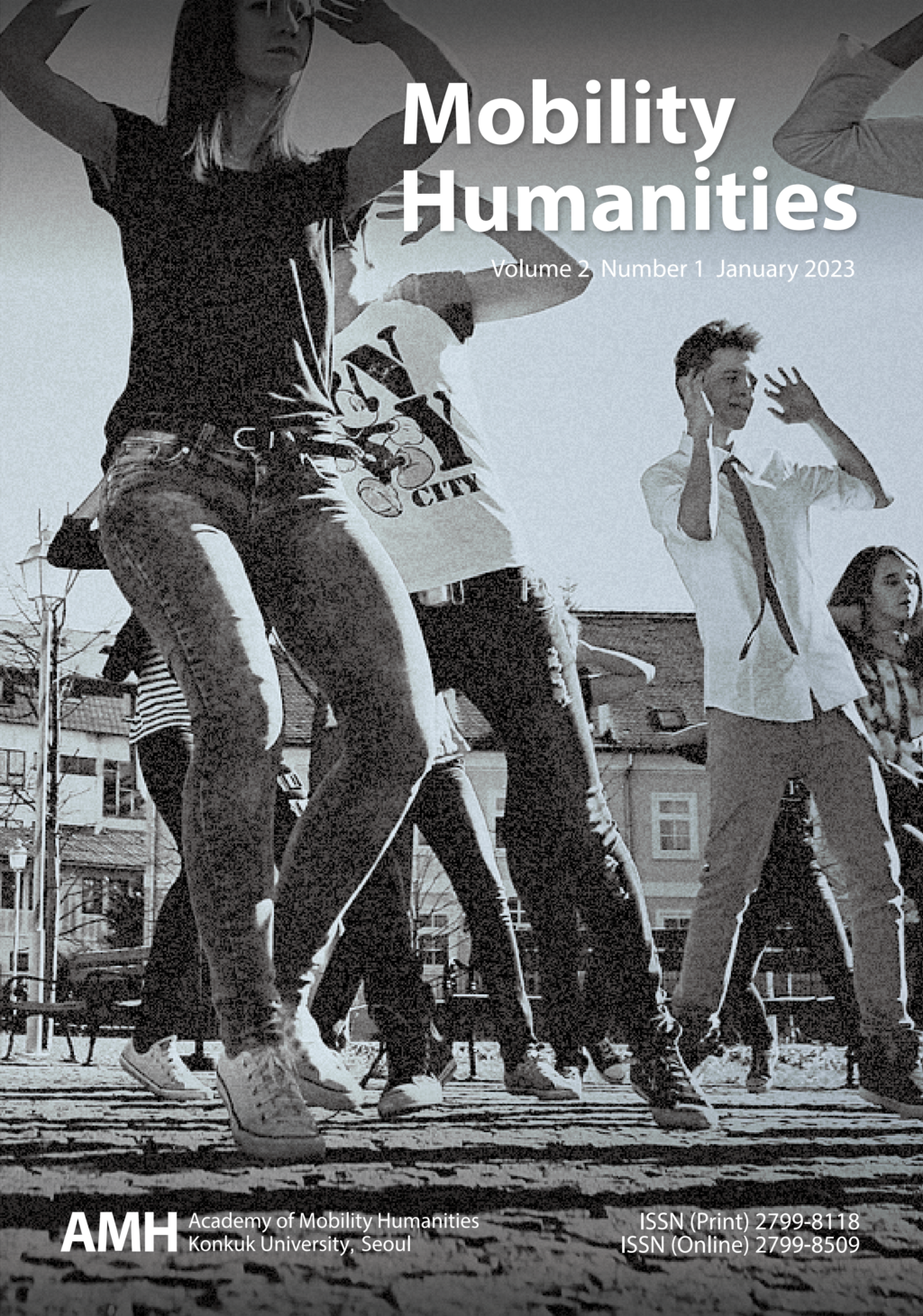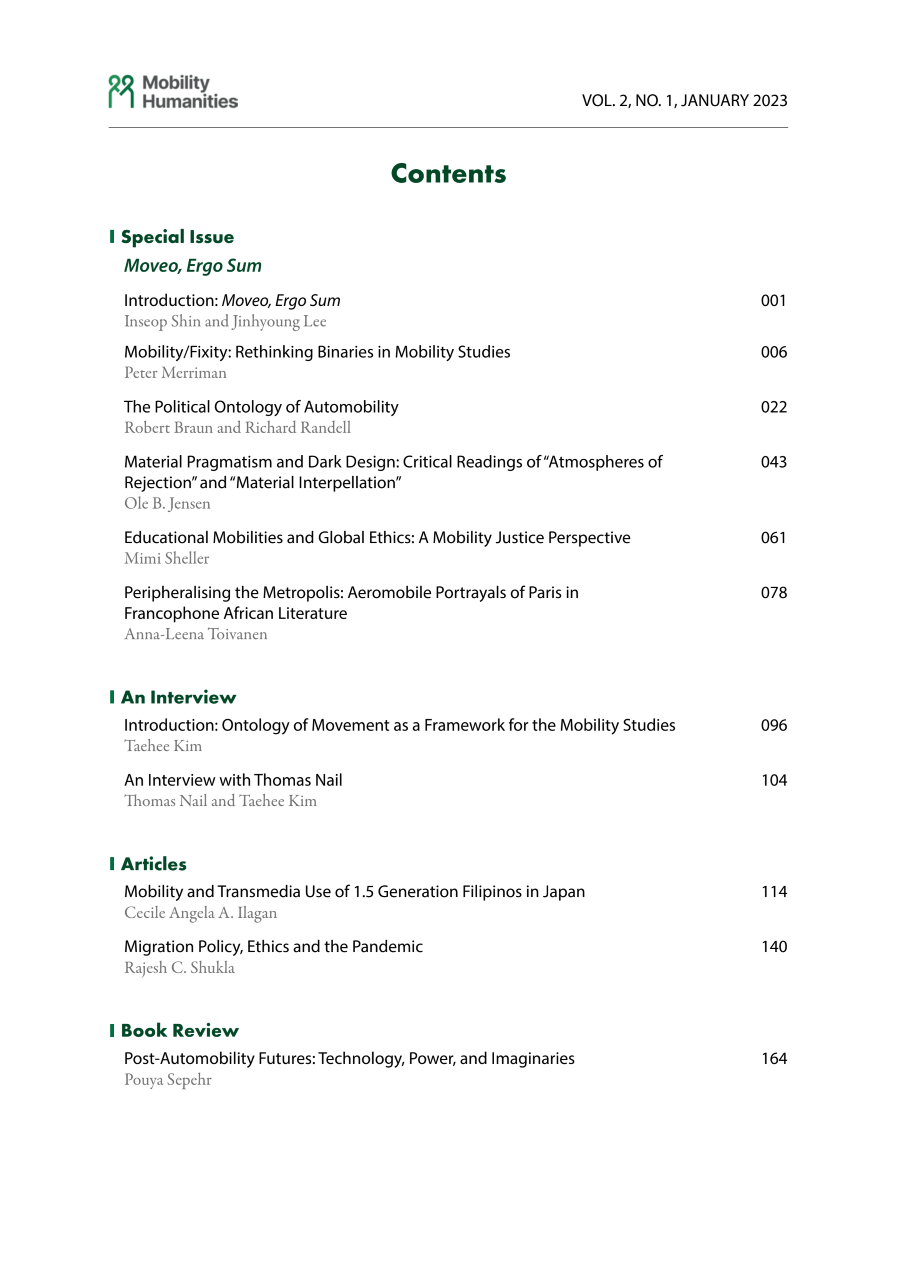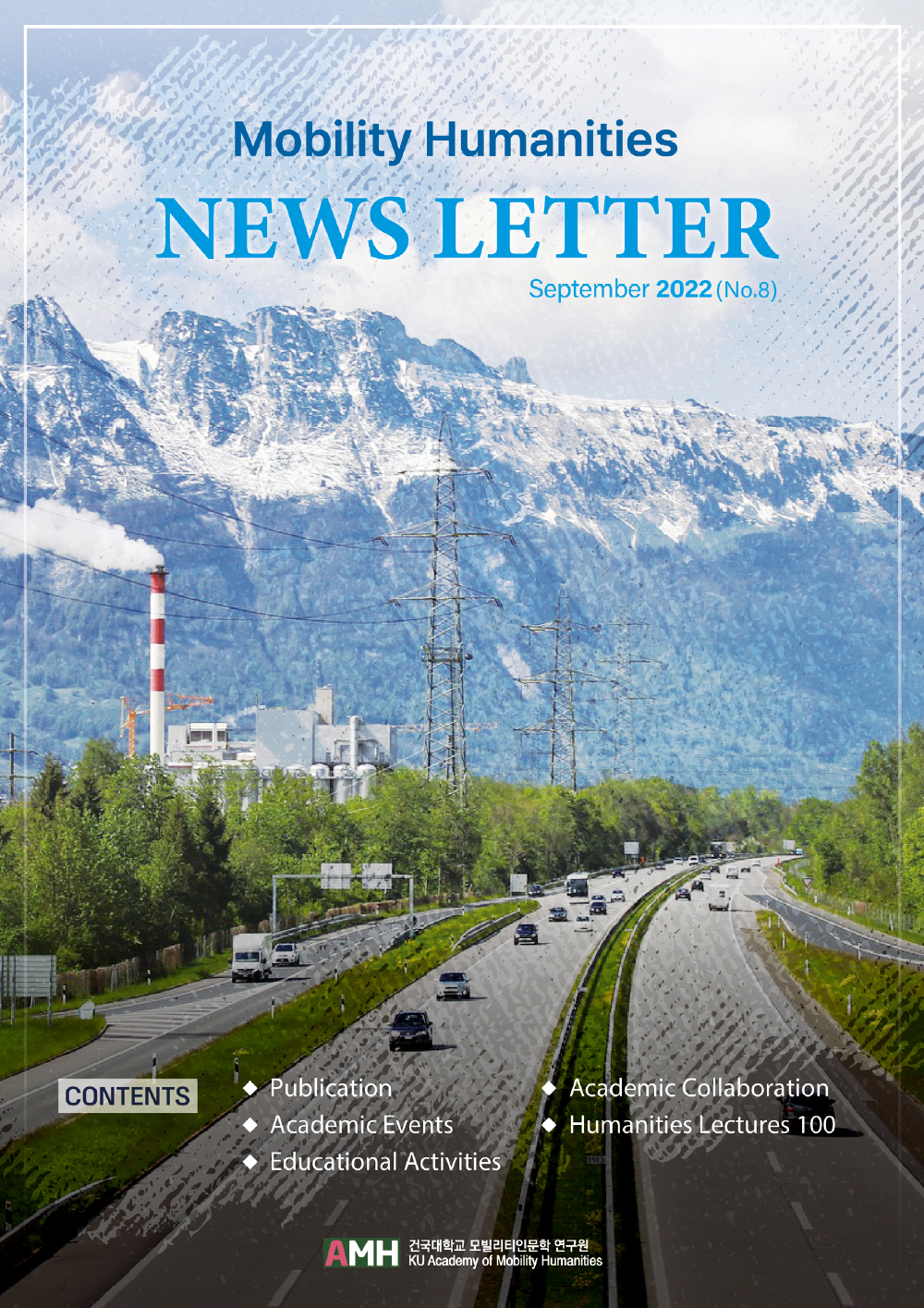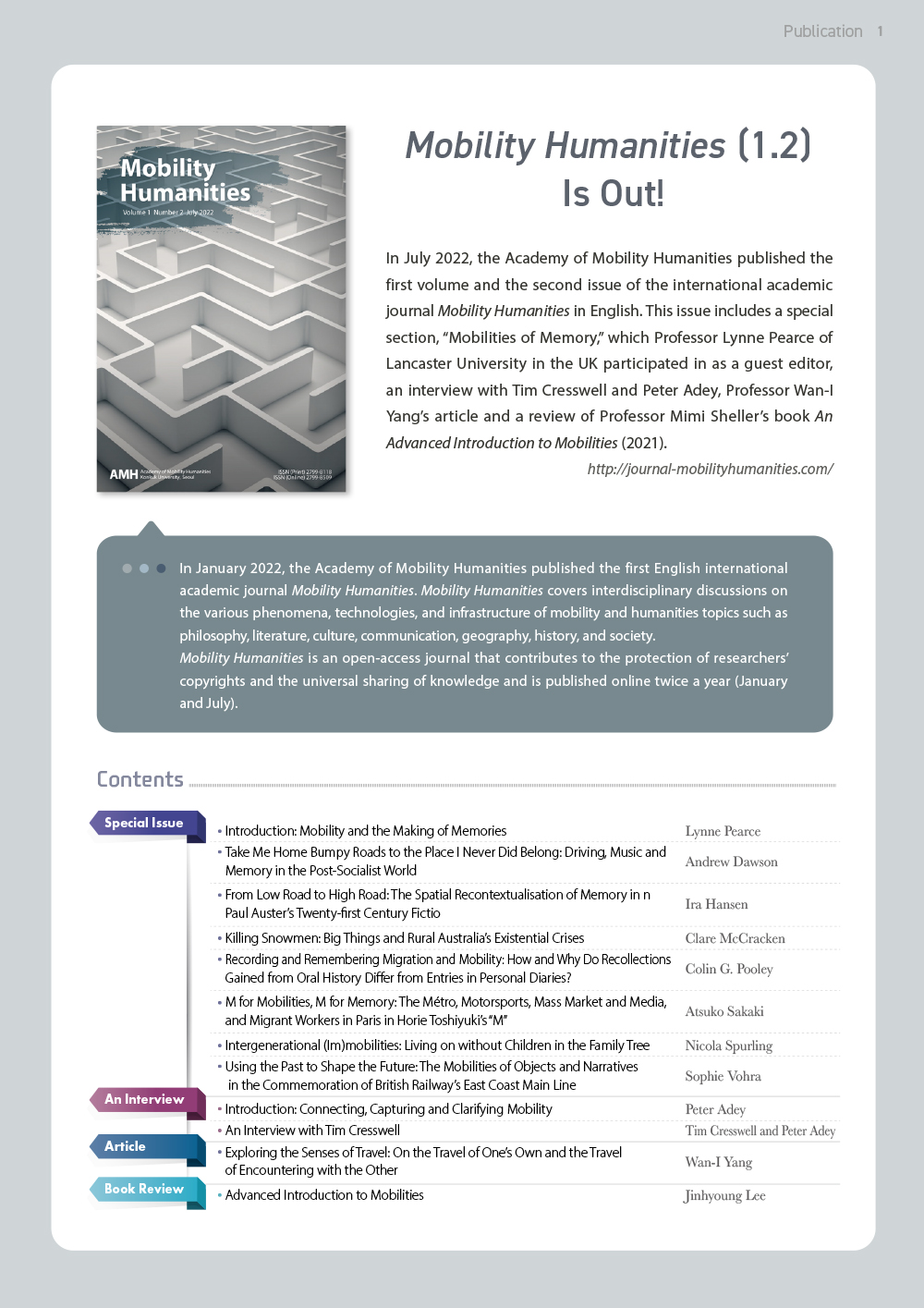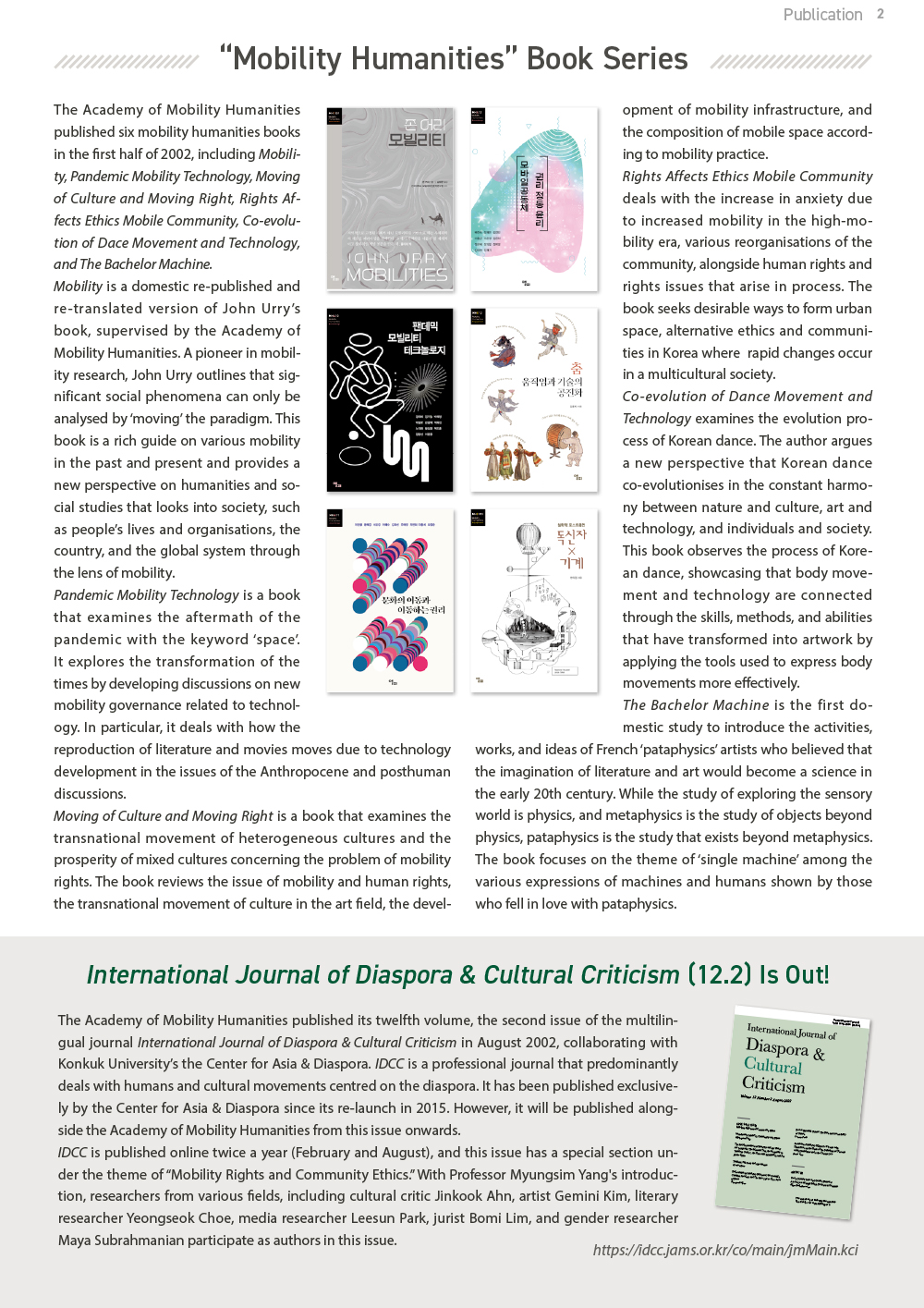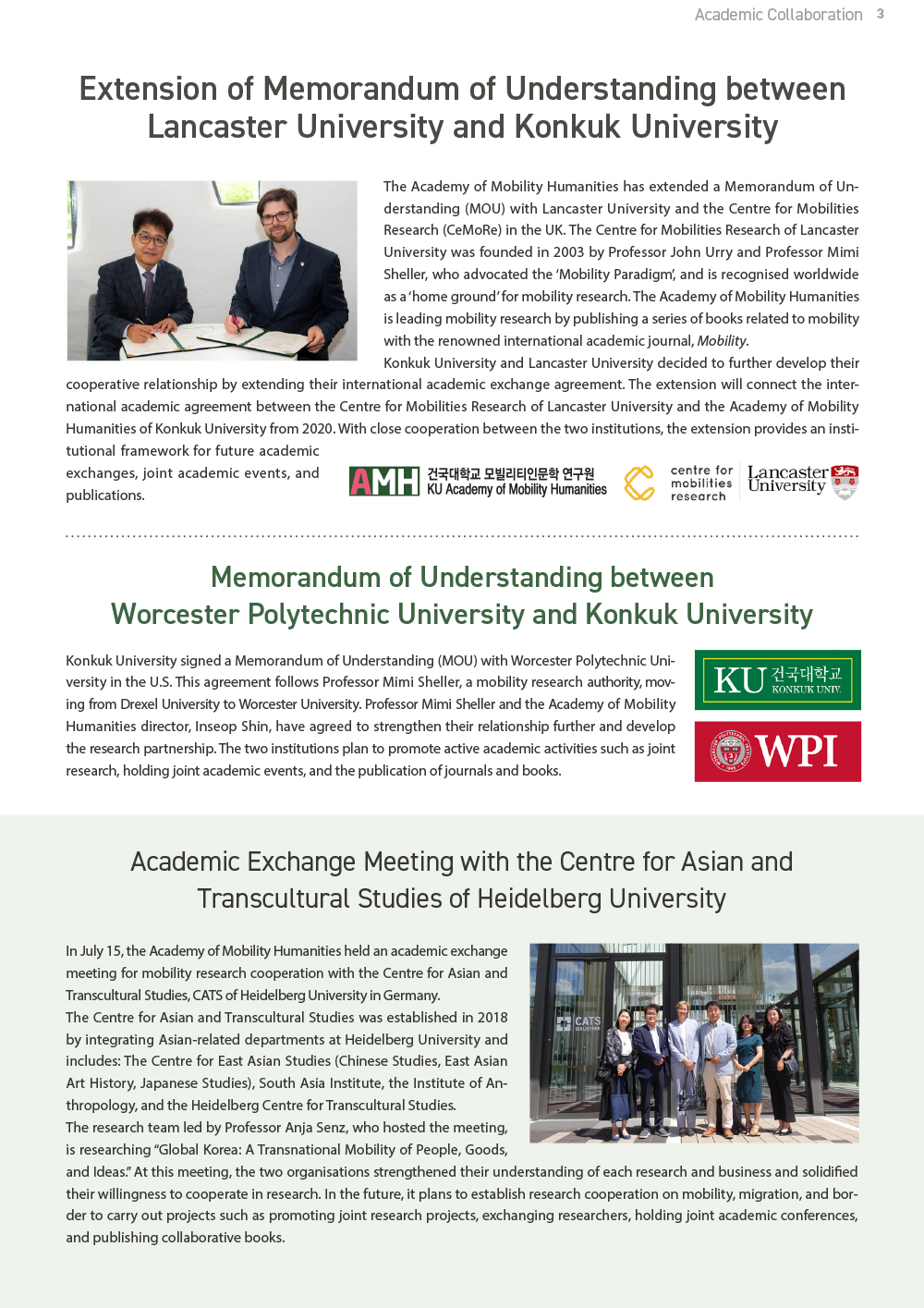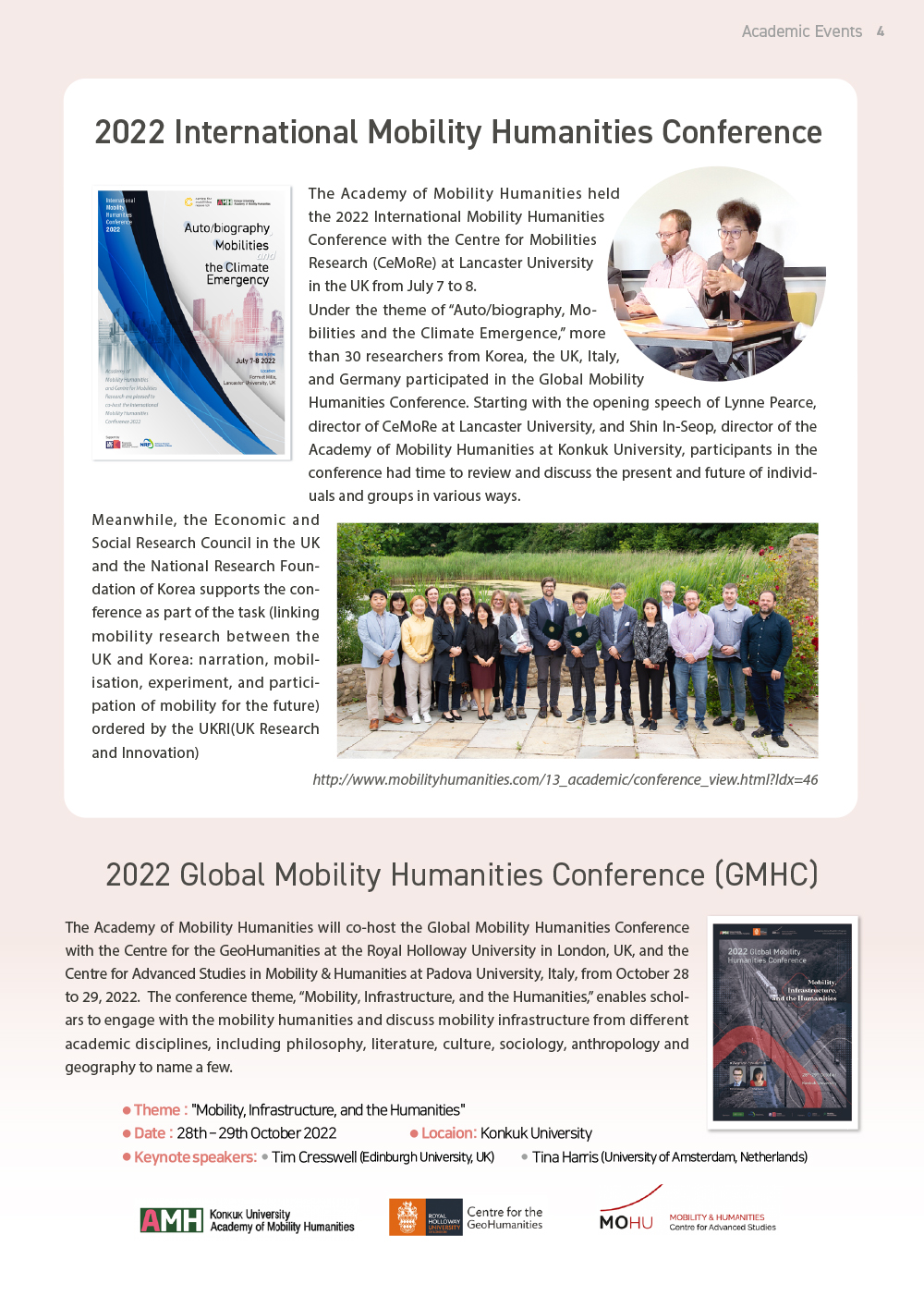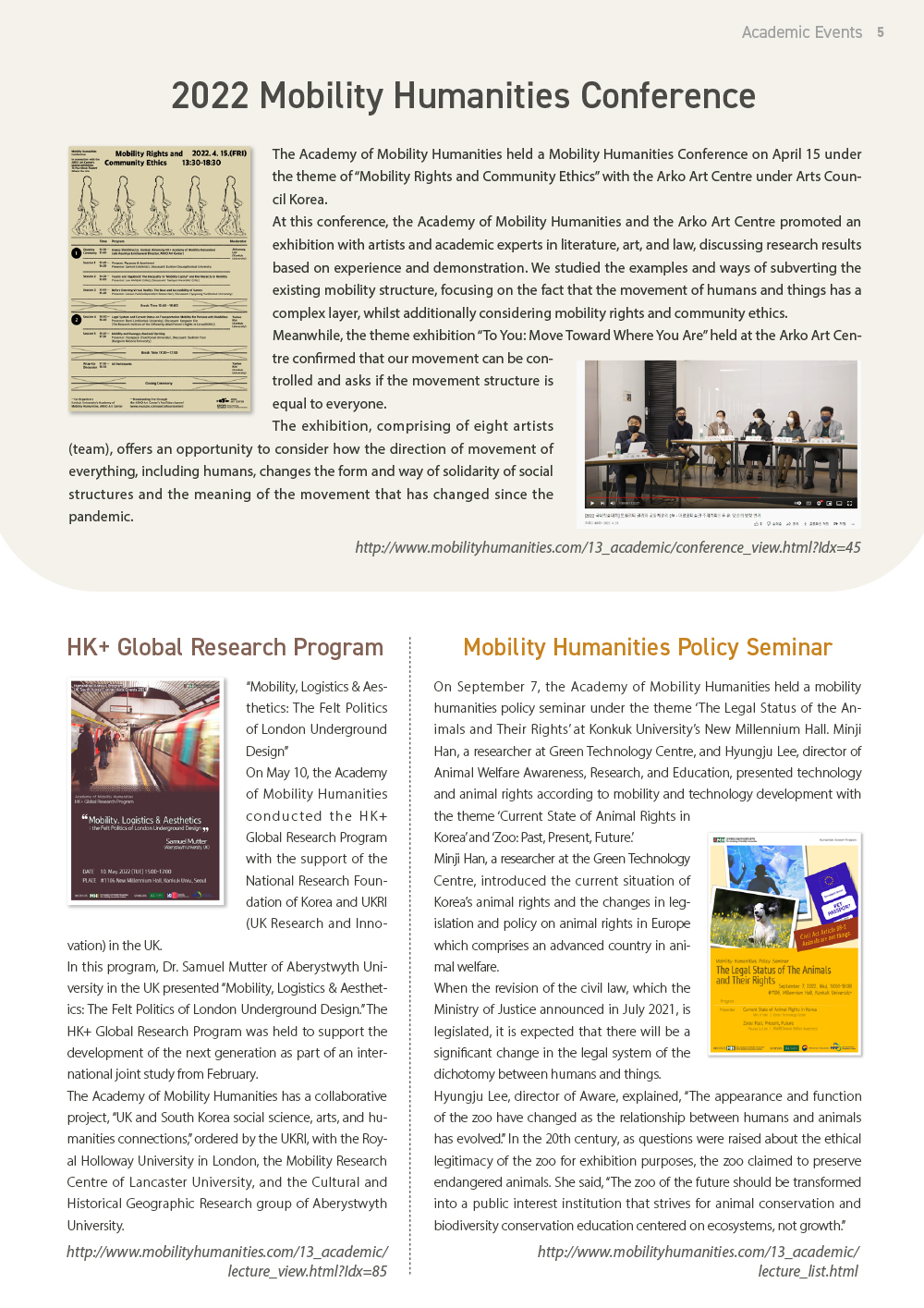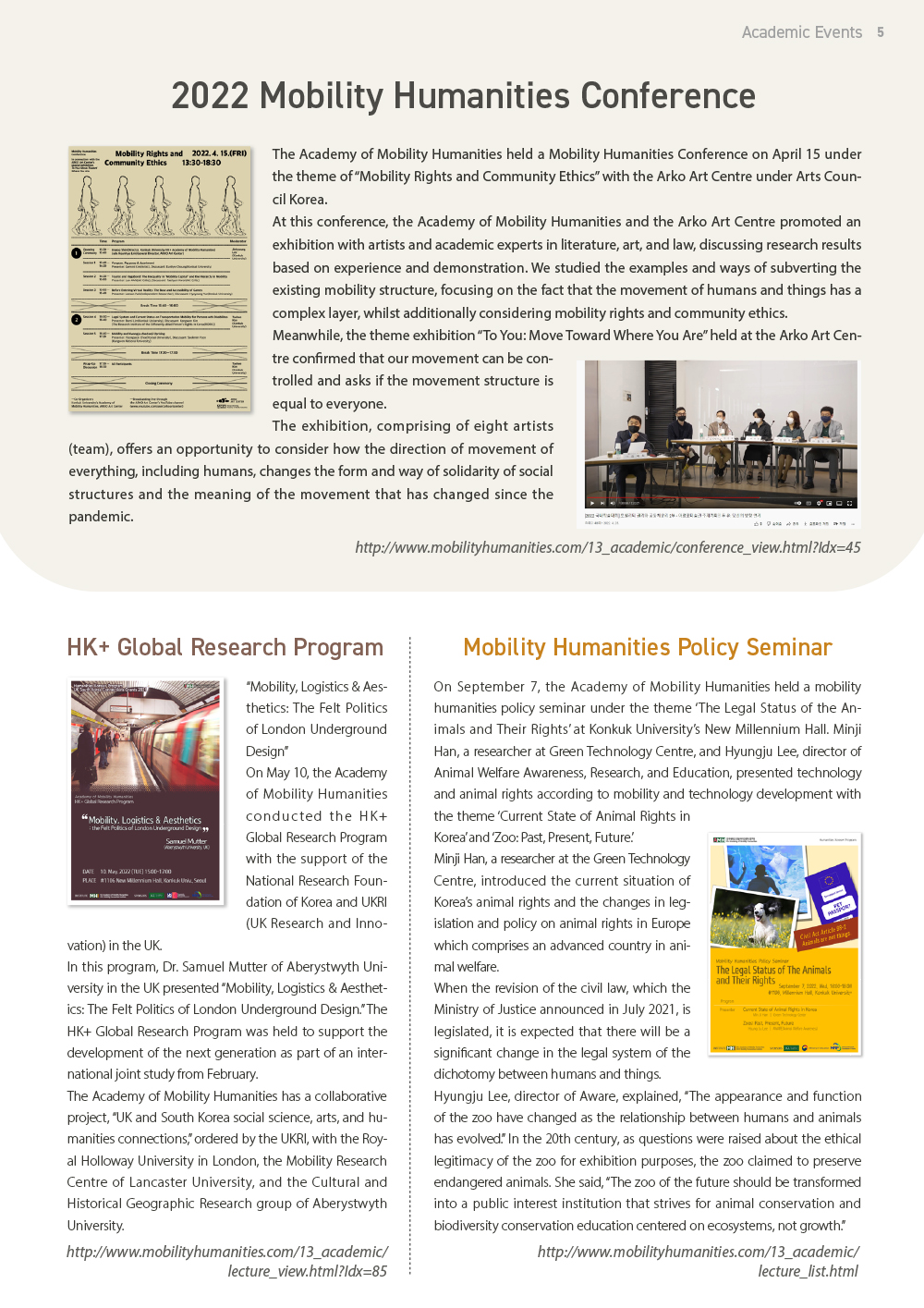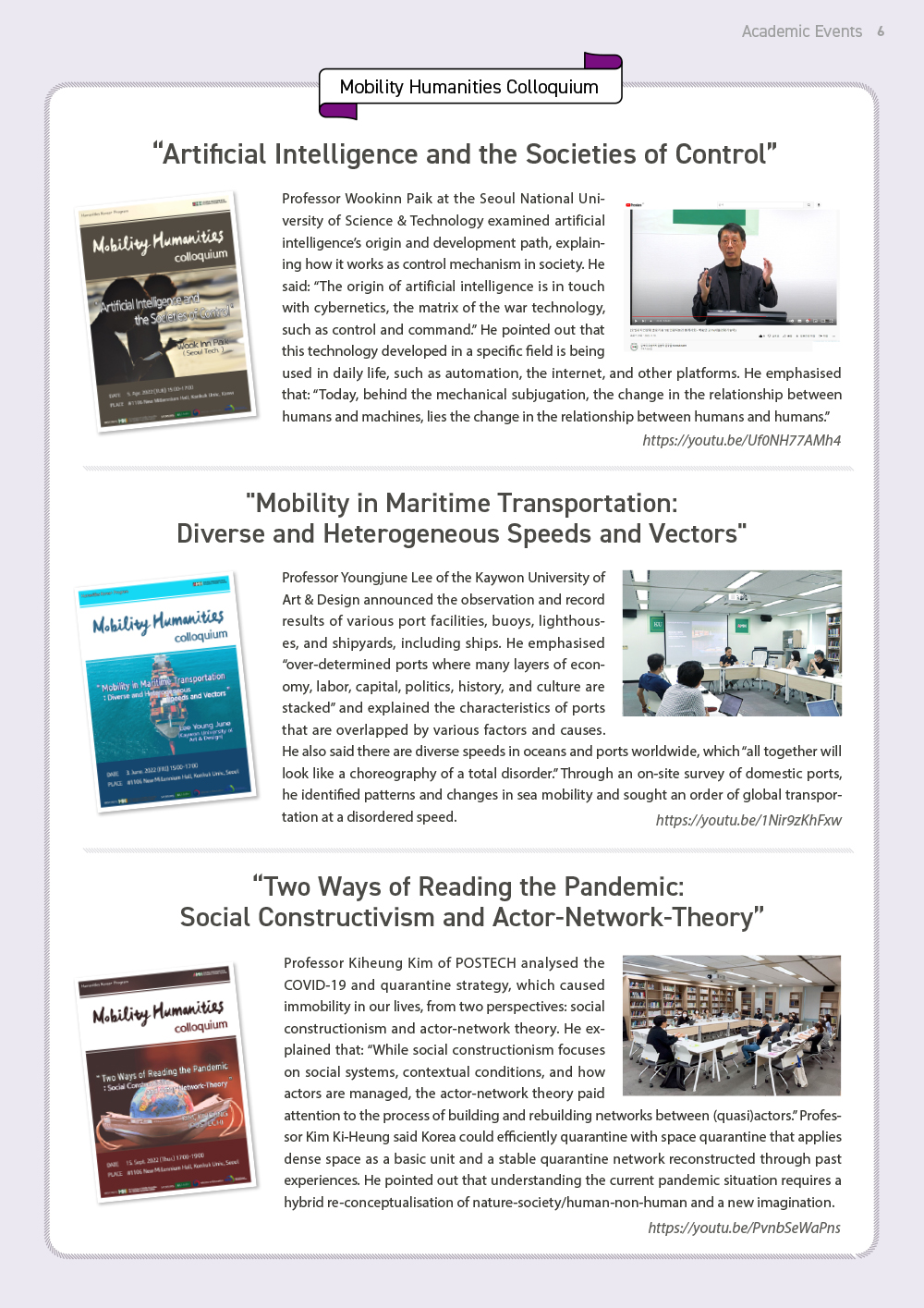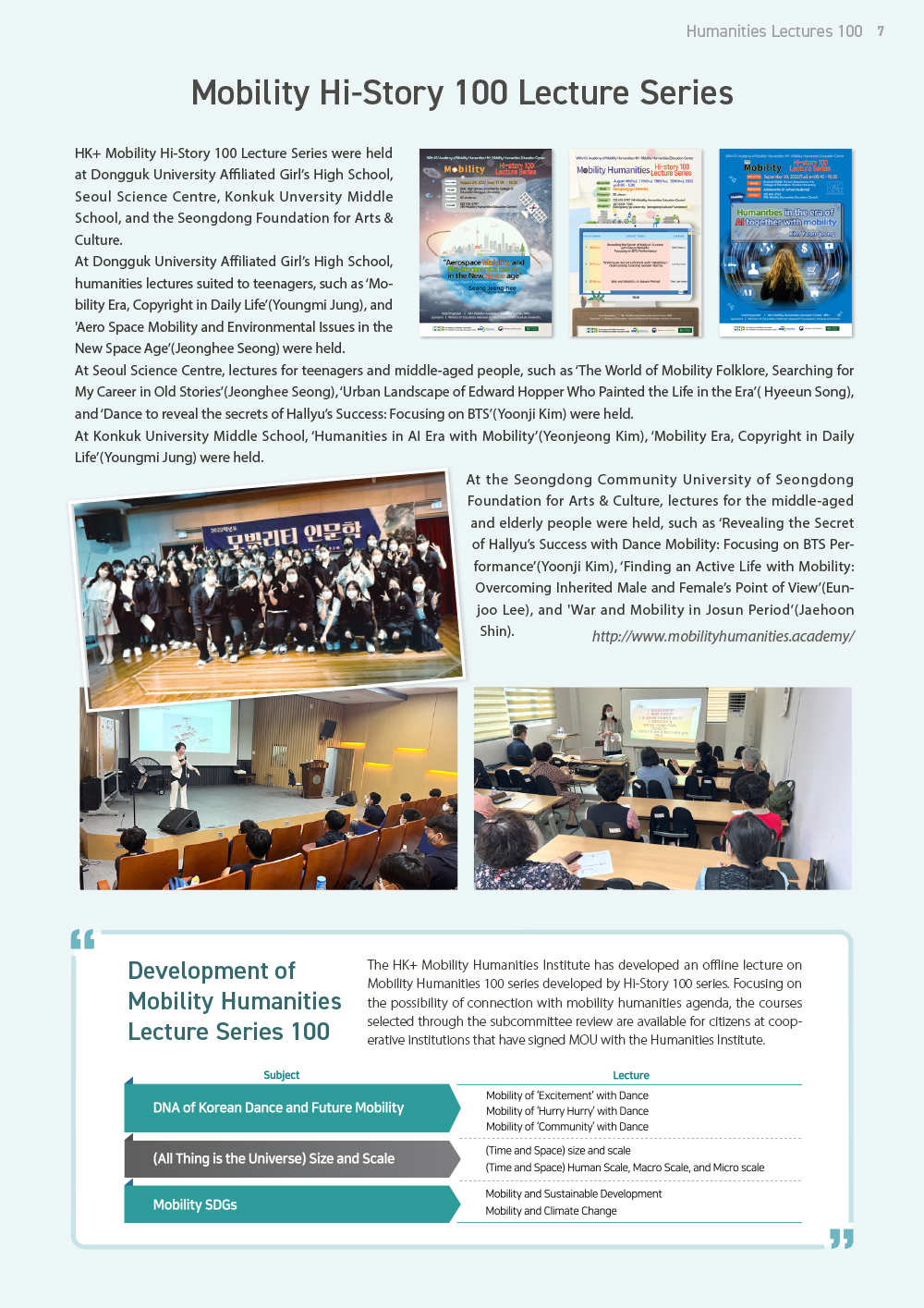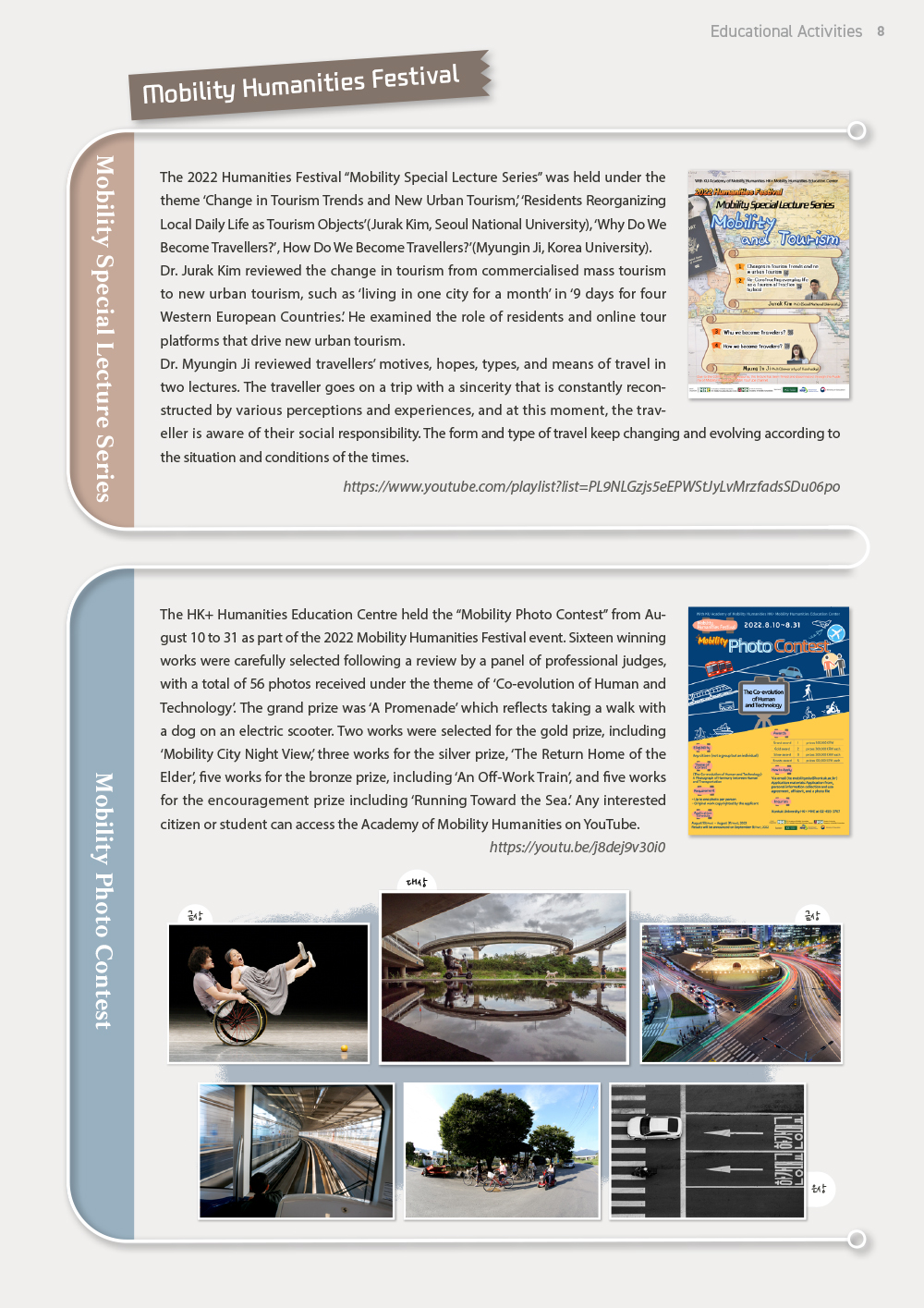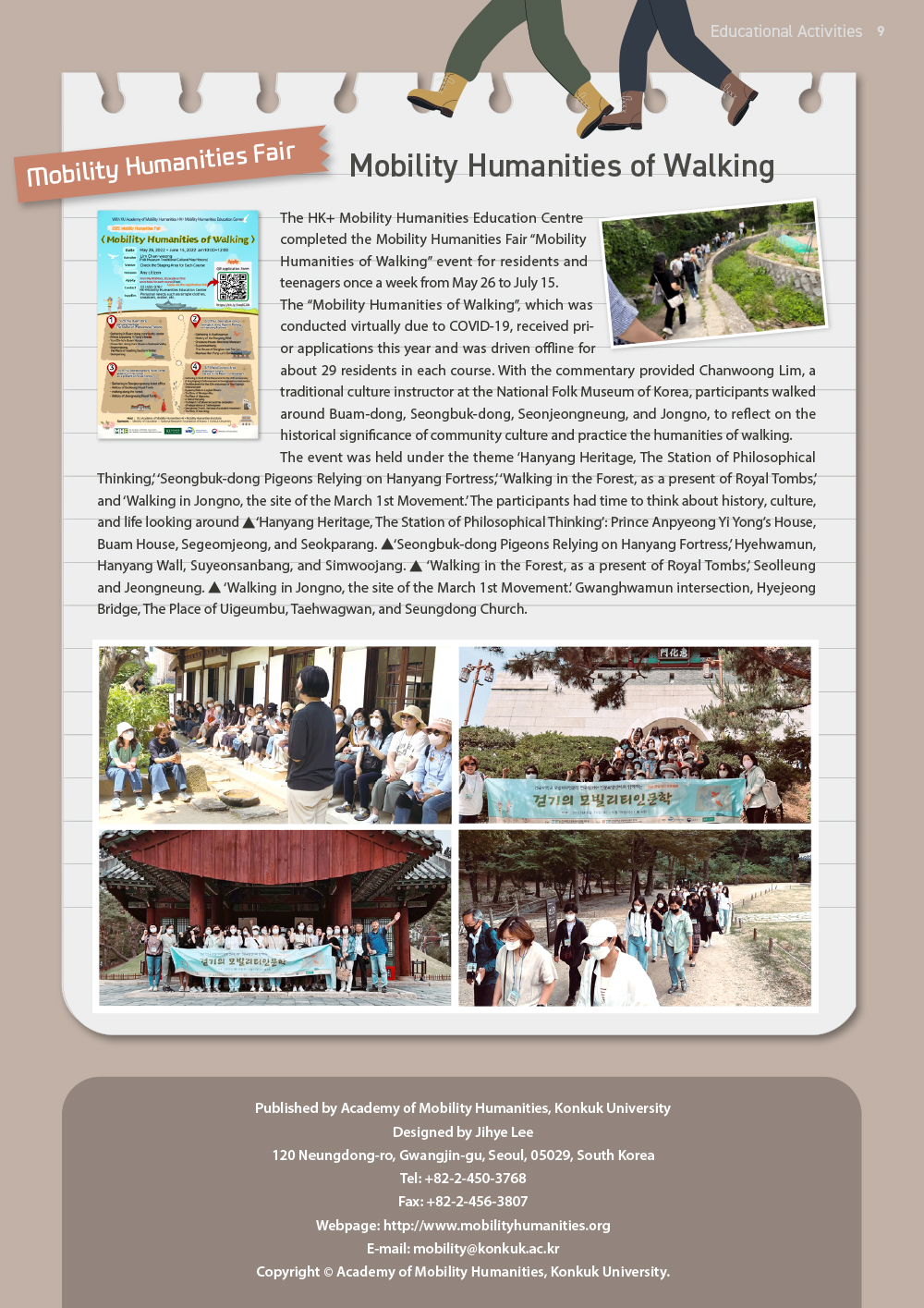To You: Move Toward Where You Are
The Mobility Capital Launched by COVID-19
This book compiles the conference’s achievements of the exhibition “To You: Move Toward Where You Are,” which was held at the Arco Art center in Dongseung-gil, Jongno-gu, Seoul, for two months from February 24 to April 24, 2022. In the past three years since the outbreak of COVID-19, ‘distancing,’ or the restriction of movement, has been the dominant social topic in 2022 as the world slowly emerges from the fear of COVID-19. As free movement is restricted, mobility, or in other words, mobility capital, has become a dramatic icon of economic, social, and cultural inequality and hierarchy. This book examines how mobility as a concept of freedom conceals many inequalities and injustices, which evoke “freedom” around accessibility for disabled people, inequality in mobility capital, game accessibility, and abusive facilities pushed out by apartment development. This is showcased by the countless pig farms scattered throughout the country in the 1960s, only to be displaced by the construction of new towns.
Mobility Rights of Disabled People and Delivery Workers
Art is a mirror of society, a microscope, or a telescope. The Internet, a product of technological advancement, has given us new ways to access places and move around. This exhibition showed the inequality of mobility and the substance of capital which are qualities of mobility armed with technological materialism. The eight artists who participated in the exhibition selected topics with contrasting social mobility conflicts, such as nightlife, used car market, delivery labor, and facilities that local residents oppose hosting, to artistically argue Mimi Sheller’s “there is no such thing as equal mobility.”
The Age of Paying for the Right to Move
Technological advancement and the most advanced mechanical civilization promise us the freedom and speed to go anywhere. Still, the right to move may be a commodity that we must pay for. The amount of capital we own makes a difference in how you and I get around.
Mijung Kim A Curator at Arco Art Centre. Works include Mis-Paly (co-curated by Insa Art Space, 2014), There was No One (Art Space Pool, 2018), To You: Move Toward Where You Are (Arco Art Centre, 2022).
Hyunkyung Kim A Policy researcher at the Korea Culture at the Korea and Tourism Institute, who specializes in visual arts and museum policy.
Jinkook Kim An art critic who won the Chosun Media’s annual spring literary contest for his art review in 2015, served as an editor of the comprehensive humanistic political criticism magazine Word and Bow and is chairman of the art policy division of the modern ‘Korean Art Critics Association.’
Yisun Park A game researcher who majored in cultural research. Predominantly writes about games and game players, alongside planning research projects.
Jaeminlee Kim An Artist. He has been intersested in local research and project. His subject matter is the minor stories on countries around Korea contrary to the metadiscourse.


